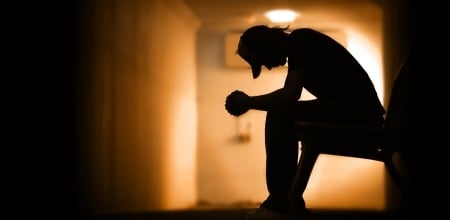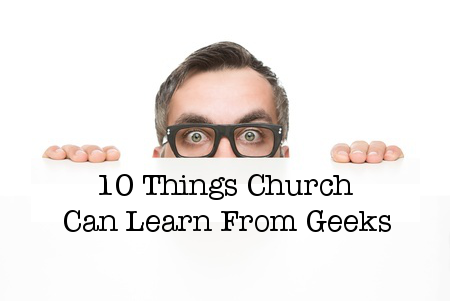
As we’ve seen, the society and community in which most churches sit have moved forward with the inevitable changes of life and for decades as they have changed The Church has done everything in it’s power to remain firmly in its place. The net result is that the Church has not only removed itself from its former place of centrality in most communities, but it has become decidedly ‘other’ – an alien in it’s own community. This isn’t the kind of ‘other’ to which Paul called the church either. That kind of ‘other’ while not of the community was very decidedly in the community.
The Church has responded in a number of very understandable yet unhealthy ways. One of them is to turn inward. When the community in which you reside looks so very different from the community within your walls, it is very comforting to turn inward. It not only reassures you that it is ‘OK’ to be like you are, but it also offers a great deal of support in a situation where you feel like the ‘outside’ world has gone astray and are infringing upon what was once your community.
Naturally, this inward turning that many churches who have been left behind by society experience, will ultimately lead to a decrease in missions, particularly in missions in the immediate community. This withdrawal from engaging in social and justice issues in the immediate community is reinforced by ever-decreasing funds.
The decrease in funding and available resources is also related to the inward turning. When church members are holding on tightly to each other in order to survive the perceived storm outside the walls of the church, it makes reaching out to new members difficult. Over time this means a decrease in membership.
Congregation members are also effected by another, more subtle, influence when it comes to bringing in new members. Identity. It has long been an unspoken problem in churches but in becoming so inward turned, it has become more pronounced. When a church disengages from the community in which it sits, it becomes a community unto itself. One contained within a predefined area by the walls of the building, but a community none-the-less. Within that community, people naturally take on roles. Sally keeps the kitchen clean; Bill tells us what to to about finances; Sue writes get-well cards, etc.
Over time, those roles become part of each individual’s identity. In many ways, they perceive it as part of who they are. “I’m the one who is responsible for having the kitchen in good order.” That’s when the roles begin to hurt the Church. There are two specific ways which most concern me. The first is with other members of the church. When the kitchen is left dirty, Sally will take it as an attack on her personally (at the very least on a sub-conscious level). When you add up all of the assumed identities within the church community, it is inevitable that there will be factions…and they will compete for control.
Worse yet, when Jane infringes on Sue’s identity as “the-one-who-writes-get-well-cards” there will be some kind of conflict and with conflict there are two likely outcomes: flight or fight. Either one has the long term effect of diminishing the church’s size and ultimately opportunity to do ministry.
The second way the conflation of roles and identity concerns me is that it leads churches to be polite, but not hospitable. While new people coming in the door do represent an opportunity to do ministry and new life, they also represent a possible threat to well established ways, a long term threat to the factions that have power and ultimately a threat to individual’s identities as the new people may also have ideas about the kitchen, finances or they may just like to write get-well cards.
So, we welcome the new people but we do so reservedly and if they are to venture into territory where they have not be given permission by the Powers That Be, they will find that the welcome did not run as deep as they had first hoped and will probably make the choice to move on. (Frequently, they chose to not continue to play this kind of game with the Church and on Sunday mornings can be found enjoying sleeping in, an extra cup of coffee, or a 10 o’clock tee time).
More churches than really care to admit it find themselves in this position. The way back to a relevant ministry is difficult, challenging, and requires a little bit of death, a little bit of re-birthing and a whole lot of faith and hope. The Good News is, life after death, and faith and hope have always been the stuff of God. That’s what we will be looking at in the last of this four part series on Organic Church.
Part 1: Hopey-Changey
Part 2: Sit Boy, Sit. Good Dogma.
Part 4: Children Grow Where I Send Thee











